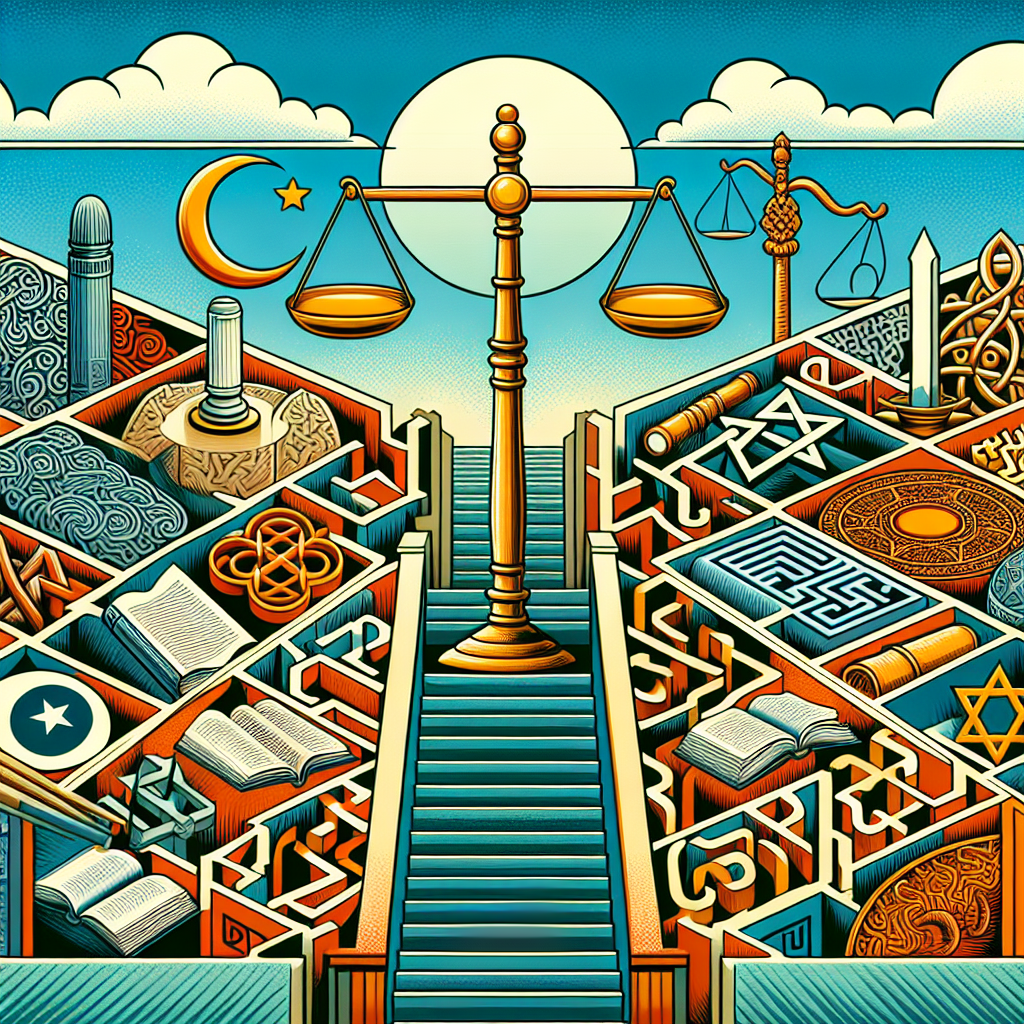Legal Implications of Religious Divorce Practices
Understanding Legal Religious Divorce Laws: Your Rights
Introduction
Religious divorce, also known as faith-based divorce, involves the dissolution of a marriage within the parameters of a specific religion or faith. Different religions have their own laws and traditions surrounding divorce, and these practices can have significant legal implications for those involved. In this article, we will explore the legal consequences and implications of following religious divorce practices.
Understanding Religious Divorce
Religious divorce is a process that is guided by the religious laws and traditions of a particular faith. In many religions, marriage is considered to be a sacred union and divorce is viewed as a last resort. As a result, the procedures and requirements for obtaining a religious divorce can often be more complex and strict than civil divorces.
Additionally, religious divorce may differ from civil divorce in terms of the grounds for divorce, property division, and custody arrangements. This can lead to confusion and disputes, especially when one spouse wants a religious divorce but the other does not.
History of Religious Divorce Laws
The history of religious divorce laws can be traced back to ancient times, when most societies were governed by religious beliefs. In many cases, religious divorce laws were heavily influenced by patriarchal and sexist beliefs, often leaving women at a disadvantage in divorce proceedings.
As societies evolved and secular laws were introduced, the influence of religion on divorce laws also changed. However, in many countries, religious laws still hold significant sway over marriage and divorce, and in some cases, can even override civil laws.
Legal Rights in Religious Divorce
The legal rights of individuals in a religious divorce can vary greatly depending on their religion and country of residence. In some cases, religious laws may not offer any legal protection to those seeking a divorce, particularly women.
For example, in many Muslim countries, men have the unilateral right to divorce their wives without going through any legal proceedings. This can leave women vulnerable and without any legal recourse to protect their rights and assets.
In other cases, religious laws may offer more protection to women, such as in some Jewish communities where women have the right to initiate divorce proceedings.
Impact on Women in Religious Divorce
As mentioned earlier, women can be disproportionately affected by religious divorce laws. In many religions, women may face stigma and discrimination if they initiate a divorce, and may also struggle to secure their legal and financial rights.
In some cases, women may also be pressured to stay in an unhappy or abusive marriage for the sake of upholding religious beliefs and traditions. This can have serious physical, emotional, and financial consequences for women.
Furthermore, religious divorce laws can also contribute to gender inequality, as they often place women in a subordinate position and reinforce gender roles and expectations within a marriage.
Challenges in Obtaining a Religious Divorce
Obtaining a religious divorce can be a challenging and frustrating process, especially for those who are not well-versed in the religious laws and traditions of their faith. In many cases, religious leaders or authorities may have the final say in granting a divorce, and their decisions may not always align with secular laws or principles of fairness.
Furthermore, religious divorce proceedings may not always be transparent or impartial, and there may be little legal recourse for those who are dissatisfied with the outcome.
Alternative Options for Religious Divorce
Recognizing the challenges and limitations of religious divorce laws, some countries have introduced alternative options for couples seeking a religious divorce. For example, in Israel, couples of different religions can choose to have their divorce proceedings overseen by a civil court, rather than a religious court.
Similarly, some countries have introduced laws that allow for a civil marriage to be recognized by religious authorities, thereby providing a legal avenue for couples to obtain a religious divorce if they choose to do so.
International Perspectives on Religious Divorce
The legal implications of religious divorce practices can also vary greatly between countries and cultures. In some countries, religious laws hold more weight and can have a significant impact on the outcome of a divorce, while in others, secular laws may take precedence.
In some cases, religious divorce laws may also conflict with international human rights laws, particularly with regards to gender equality and women’s rights. This has led to debates and discussions about the need for reform and modernization of religious divorce laws.
Current Debates on Religious Divorce Laws
There are ongoing debates and discussions about the role of religion in divorce proceedings, particularly in cases where religious laws may contradict secular laws and principles of equality. Many argue that religious divorce laws should be reformed to better protect the rights of individuals, particularly women.
On the other hand, some argue that religious freedom should be respected and that religious divorce laws should not be interfered with by secular laws. This debate continues to be a contentious issue in many countries around the world.
Moving Towards Fair and Equal Religious Divorce Laws
In conclusion, the legal implications of religious divorce practices can have a significant impact on individuals and society as a whole. While religious beliefs and traditions should be respected, it is also important to ensure that the legal rights and protections of all individuals, especially women, are upheld.
Moving towards fair and equal religious divorce laws may require a combination of legal reform, cultural shifts, and open dialogue between religious and secular authorities. Ultimately, the goal should be to protect the rights and well-being of all individuals involved in a religious divorce while also respecting religious beliefs and traditions.




